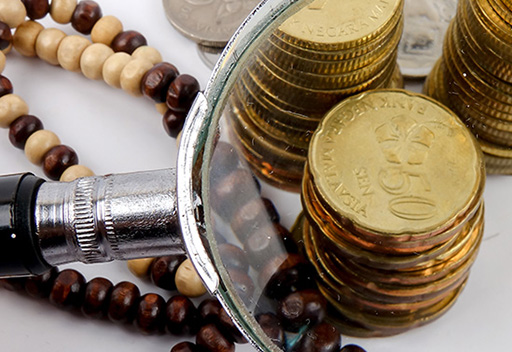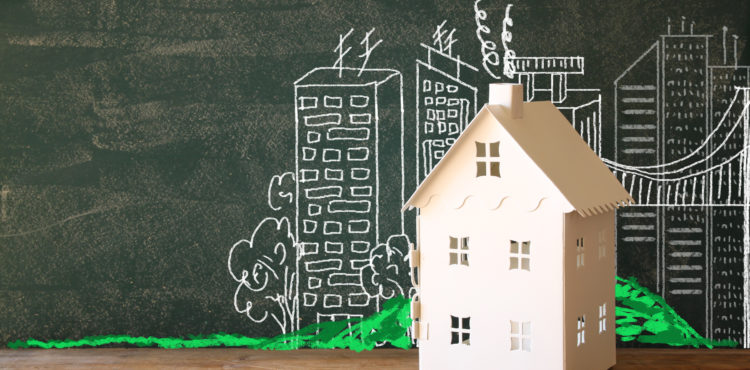Table of Contents
ToggleHave you thought about the Islamic home financing options in Egypt?
As Egypt’s real estate market continues to grow and attract both domestic and international investors, the demand for ethically compliant financial solutions has also seen a steady rise. Among these, Islamic home financing stands out as a viable and increasingly popular alternative for Muslim consumers seeking to align their financial transactions with Sharia (Islamic law). This article explores the various Islamic home financing options available in Egypt, their principles, mechanisms, benefits, and challenges.
Understanding Islamic Finance Principles
Before diving into specific financing products, it’s essential to understand the foundational principles that differentiate Islamic finance from conventional finance:
-
Prohibition of Riba (Interest): Charging or paying interest is strictly forbidden in Islam. Any guaranteed interest on loans is considered exploitative.
-
Risk Sharing: Transactions must involve a level of risk and reward sharing between the financier and the customer.
-
Asset-Backed Financing: Financing must be tied to tangible assets or services, not speculative or debt-based instruments.
-
Ethical Investments: Investment and finance must avoid businesses involved in prohibited activities such as gambling, alcohol, or pork production.
These principles shape all Islamic financial products, including those related to home financing.
Islamic Home Financing Mechanisms in Egypt
In Egypt, Islamic banks and financial institutions offer various home financing options compliant with Islamic principles. The three most commonly used models are Murabaha, Ijara Muntahia Bittamleek, and Musharaka Mutanaqisa.
Murabaha (Cost-Plus Sale)
How it works:
In a Murabaha-based home financing agreement, the bank purchases the desired property on behalf of the customer and then sells it to the customer at a pre-agreed profit margin. The customer pays for the property in fixed monthly installments over an agreed period.
Key Features:
-
Transparent profit margin disclosed upfront.
-
Fixed payment structure provides predictability.
-
The bank assumes initial ownership, which aligns with Sharia requirements.
Advantages:
-
Simple and straightforward.
-
No fluctuating payments.
-
Widely accepted and offered by most Islamic banks in Egypt.
Challenges:
-
May not be as flexible as other models.
-
Higher upfront cost since the profit is fixed regardless of early repayment.
Ijara Muntahia Bittamleek (Lease to Own)
How it works:
Under this model, the bank purchases the property and leases it to the customer for a fixed period. At the end of the lease, ownership of the property is transferred to the customer, often for a nominal amount.
Key Features:
-
Property remains under the bank’s ownership until the lease term ends.
-
The customer pays rent rather than loan installments.
-
Includes a promise to transfer ownership at the end.
Advantages:
-
Allows gradual acquisition of ownership.
-
Suitable for clients who cannot afford immediate purchase.
-
Encourages partnership between bank and client.
Challenges:
-
Maintenance responsibilities and insurance obligations must be clearly defined.
-
Complications may arise if the customer defaults or ends the lease early.
Musharaka Mutanaqisa (Diminishing Partnership)
How it works:
In this model, the bank and the customer jointly purchase the property. The customer gradually buys out the bank’s share over time through periodic payments, while also paying rent for the portion still owned by the bank. Eventually, the customer becomes the full owner.
Key Features:
-
Partnership-based, reflecting shared risk and reward.
-
Monthly payments consist of two components: rent and equity purchase.
-
Ownership shifts progressively.
Advantages:
-
Highly ethical and collaborative.
-
More flexible and fair, especially in fluctuating economic conditions.
-
Encourages responsibility and joint ownership.
Challenges:
-
Complex contract structure.
-
Not as widely available as Murabaha or Ijara in Egypt.
Major Islamic Banks Offering Home Financing in Egypt
Several banks in Egypt offer Islamic home financing, either as fully Islamic banks or as Islamic windows within conventional banks. Here are a few notable names:
1. Faisal Islamic Bank of Egypt
-
One of the oldest Islamic banks in the country.
-
Offers Murabaha-based home financing products.
-
Competitive profit rates and repayment terms.
2. Al Baraka Bank Egypt
-
Offers a range of Sharia-compliant home financing options.
-
Known for its transparent dealings and customer service.
-
Provides financing for ready and under-construction properties.
3. Abu Dhabi Islamic Bank (ADIB) – Egypt
-
Offers Murabaha and Ijara-based housing finance solutions.
-
Flexible repayment periods and lower down payment requirements.
4. Banque Misr – Islamic Banking Window
-
Although primarily a conventional bank, its Islamic arm offers home finance.
-
Works closely with developers to facilitate easy property acquisition.
Regulatory Environment and Oversight
Islamic finance in Egypt is regulated by the Central Bank of Egypt (CBE), which ensures that Islamic financial products are in line with both national financial regulations and Sharia compliance. Most Islamic banks also have their own Sharia Supervisory Boards, consisting of scholars who review and approve products and contracts.
Additionally, the Egyptian Financial Regulatory Authority (FRA) is involved in monitoring non-banking financial services, including Islamic mortgage companies.
Market Trends and Consumer Demand
In recent years, several factors have contributed to the growing demand for Islamic home financing in Egypt:
-
Increasing religious awareness: Many Egyptians prefer financial dealings that align with their faith.
-
Real estate boom: Egypt’s booming real estate market is driving demand for ethical financing options.
-
Government support: Egypt’s Vision 2030 and housing projects (e.g., New Administrative Capital) have opened new doors for Islamic financing.
Furthermore, new fintech players and mobile banking services are also exploring Sharia-compliant financing models, making Islamic home finance more accessible and tech-enabled.
Challenges and Considerations
Despite its potential, Islamic home financing in Egypt faces several challenges:
-
Limited product variety: Murabaha dominates the market, while more innovative models like Musharaka remain rare.
-
Higher perceived cost: Some customers view Islamic financing as more expensive due to fixed profit margins.
-
Complex documentation: Islamic contracts can be more complicated than conventional loans, requiring legal and Sharia expertise.
-
Awareness gaps: Many consumers still lack understanding of Islamic finance mechanisms.
Conclusion
Islamic home financing in Egypt offers a viable and Sharia-compliant alternative for individuals seeking ethical property ownership. With several products like Murabaha, Ijara, and Musharaka available, customers can choose the model that best fits their financial capacity and preferences.
As the demand for Islamic finance continues to grow and awareness increases, Egypt is well-positioned to further develop and diversify its Islamic home financing landscape. With greater regulatory support, innovation, and consumer education, Islamic financing can play a key role in promoting inclusive, ethical, and sustainable housing finance across the country.
Frequently Asked Questions
What is Islamic home financing, and how is it different from conventional mortgage loans?
]Islamic home financing is a method of purchasing property that complies with Sharia (Islamic law), which prohibits riba (interest). Unlike conventional mortgages where banks lend money and charge interest over time, Islamic home financing involves asset-backed transactions. The bank either buys the property and sells it to the customer at a profit (Murabaha), leases it to the customer (Ijara), or co-owns it with the customer (Musharaka) and gradually transfers ownership. These models ensure that both the bank and the buyer share risks and rewards, aligning with Islamic ethical standards.
What is the Murabaha model, and how does it work in Egypt?
Murabaha is the most commonly used Islamic home financing model in Egypt. In this arrangement, the bank purchases the property selected by the customer and then sells it to the customer at a marked-up price. The customer repays this price in equal installments over an agreed term. The markup is a pre-disclosed profit margin, not interest.
For example, if a home costs EGP 1 million, the bank might sell it to the customer for EGP 1.3 million, payable over 10 years in monthly installments. The customer knows the total cost upfront, providing transparency and stability.
What is Musharaka Mutanaqisa, and why is it considered more ethical?
Musharaka Mutanaqisa (Diminishing Partnership) is a co-ownership model. The bank and the customer jointly purchase the property. The customer gradually buys out the bank’s share while paying rent for the portion still owned by the bank.
As the customer’s ownership increases, the rent amount decreases proportionally. Eventually, the customer becomes the sole owner. This model is considered more ethical because it reflects true risk-sharing, a core Islamic financial principle, and aligns the interests of both parties throughout the financing period.
